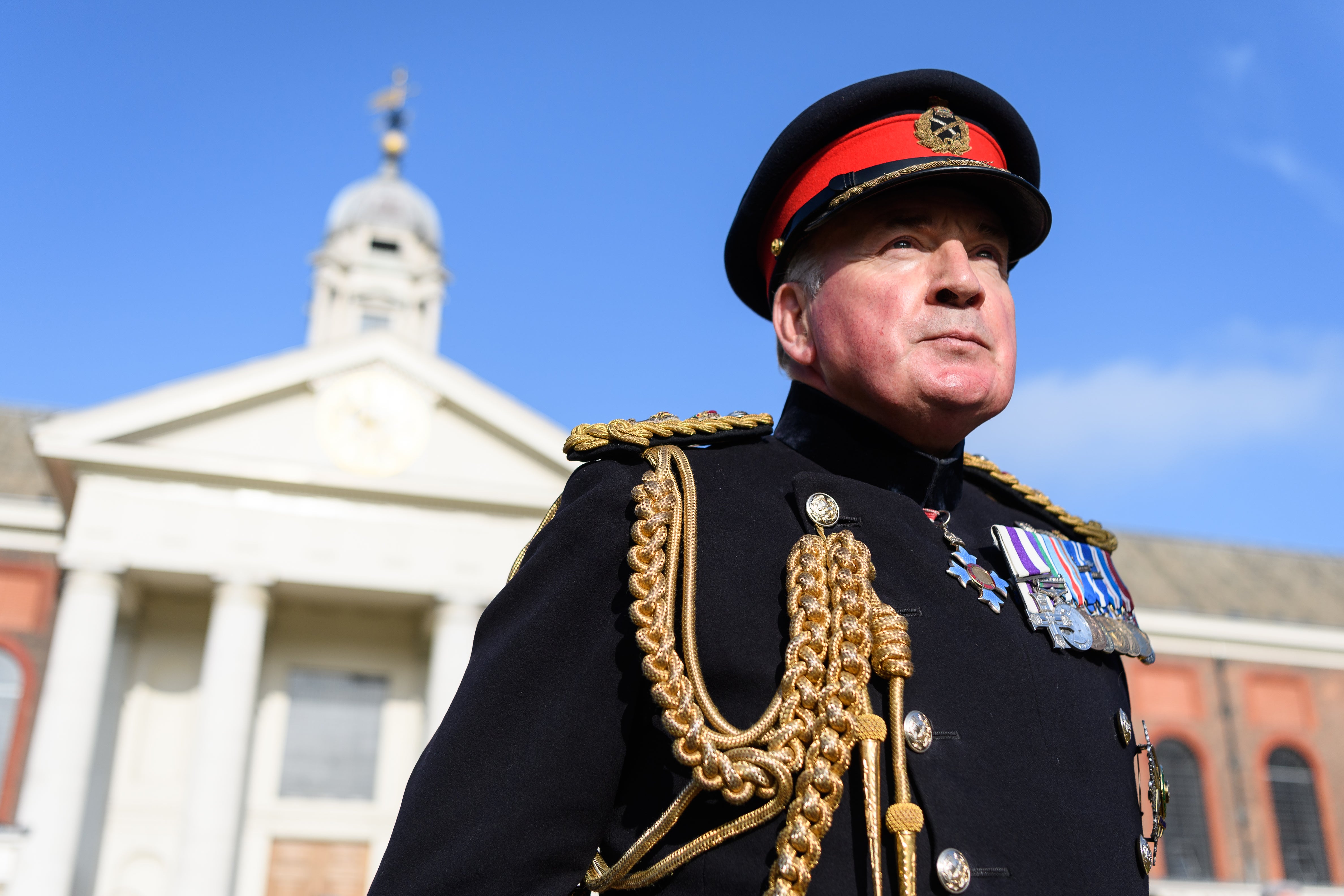Former British army chief slams government’s ‘vicious’ small boats bill
Lord Dannatt raised case of Afghan pilot who has been threatened with removal to Rwanda
Your support helps us to tell the story
From reproductive rights to climate change to Big Tech, The Independent is on the ground when the story is developing. Whether it's investigating the financials of Elon Musk's pro-Trump PAC or producing our latest documentary, 'The A Word', which shines a light on the American women fighting for reproductive rights, we know how important it is to parse out the facts from the messaging.
At such a critical moment in US history, we need reporters on the ground. Your donation allows us to keep sending journalists to speak to both sides of the story.
The Independent is trusted by Americans across the entire political spectrum. And unlike many other quality news outlets, we choose not to lock Americans out of our reporting and analysis with paywalls. We believe quality journalism should be available to everyone, paid for by those who can afford it.
Your support makes all the difference.The former head of the British army has slammed the government’s small boats bill as “vicious” and said it “will diminish Britain’s standing in the world”.
General Sir Richard Dannatt used the case of an Afghan pilot who arrived in the UK on a small boat to illustrate the failings of the bill’s blanket approach to turning migrants away.
He told the BBC’s World at One that the government’s Illegal Migration Bill, which would detain and deport anyone who arrived in the UK in this way, was morally offensive.
The former army chief said: “The viciousness, and I use that word quite advisedly, of this bill offends many people’s moral position. It runs the risk of offending Britain’s standing in the world, as a country that upholds international law.”

He argued that the government should treat refugees differently to economic migrants, adding: “Take for example the Afghan pilot - who came to this country, not through the official system but on a small boat. He now runs the risk of being deported to Rwanda.”
Immigration minister Robert Jenrick admitted that the blanket ban on anyone arriving by small boats would throw up “morally complex choices” but said he wouldn’t comment on individual cases, adding: “It’s only by applying a tough but fair approach like this that we can get a grip on the system.”
Lord Dannatt said the pilot was “exactly the sort of person” who would have been welcomed into the country if there had been a legal and safe route for him to get here.
The airman, whose story was first highlighted in The Independent, fled Afghanistan in fear of Taliban reprisals and has now been threatened with removal from the UK to Rwanda.
The air force lieutenant, who served alongside British forces, said that he had to come to the UK via a small boat because there were no viable safe routes.
When challenged on the pilot’s case on the World at One, Mr Jenrick said the war hero “did have a choice” to come to the UK via a legal route. Mr Jenrick referenced the Ministry of Defence’s Afghan Relocation Assistance Policy (Arap) scheme, which resettles those who worked directly for the British armed forces or who contributed to a specific British effort in Afghanistan.

He also referenced the Home Office’s Afghanistan Citizen Resettlement Scheme (ACRS) scheme, the government’s general scheme for at-risk Afghans to come to the UK. This scheme has so far resettled just 22 people since the initial evacuation.
Charities and MPs have criticised both schemes, saying that the ineffectiveness of these routes is pushing up small boat crossings.
Mr Jenrick vowed: “If you come across illegally on a small boat you will not find a route to life in the UK; you’ll either be returned home if your home country is a safe place, such as Albania, or you’ll be returned to a safe third-country, such as Rwanda.”
He continued: “One of the limiting factors, on helping people like that pilot, is the fact that their places are being taken by predominantly young men who are in a place of safety in France, who are skipping the queue, breaking into our country, in breach of our laws.”
He said that by stopping the small boat crossings “we will have the ability to do even more to help people, such as the case that Lord Dannatt raises”.
His comments come after the Archbishop of Canterbury slammed the Illegal Migration Bill as “morally unacceptable”.
Speaking in the Lords on Wednesday, Justin Welby urged the government to reconsider much of the bill which, he said, “fails to live up to our history, our moral responsibility and our political and international interests.”




Join our commenting forum
Join thought-provoking conversations, follow other Independent readers and see their replies
Comments